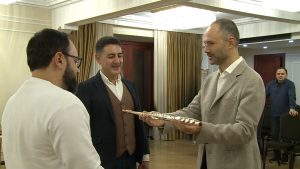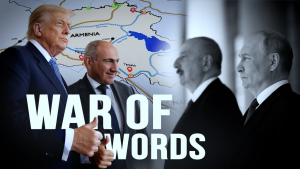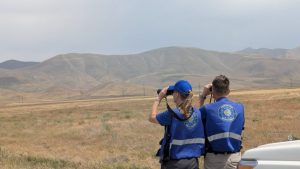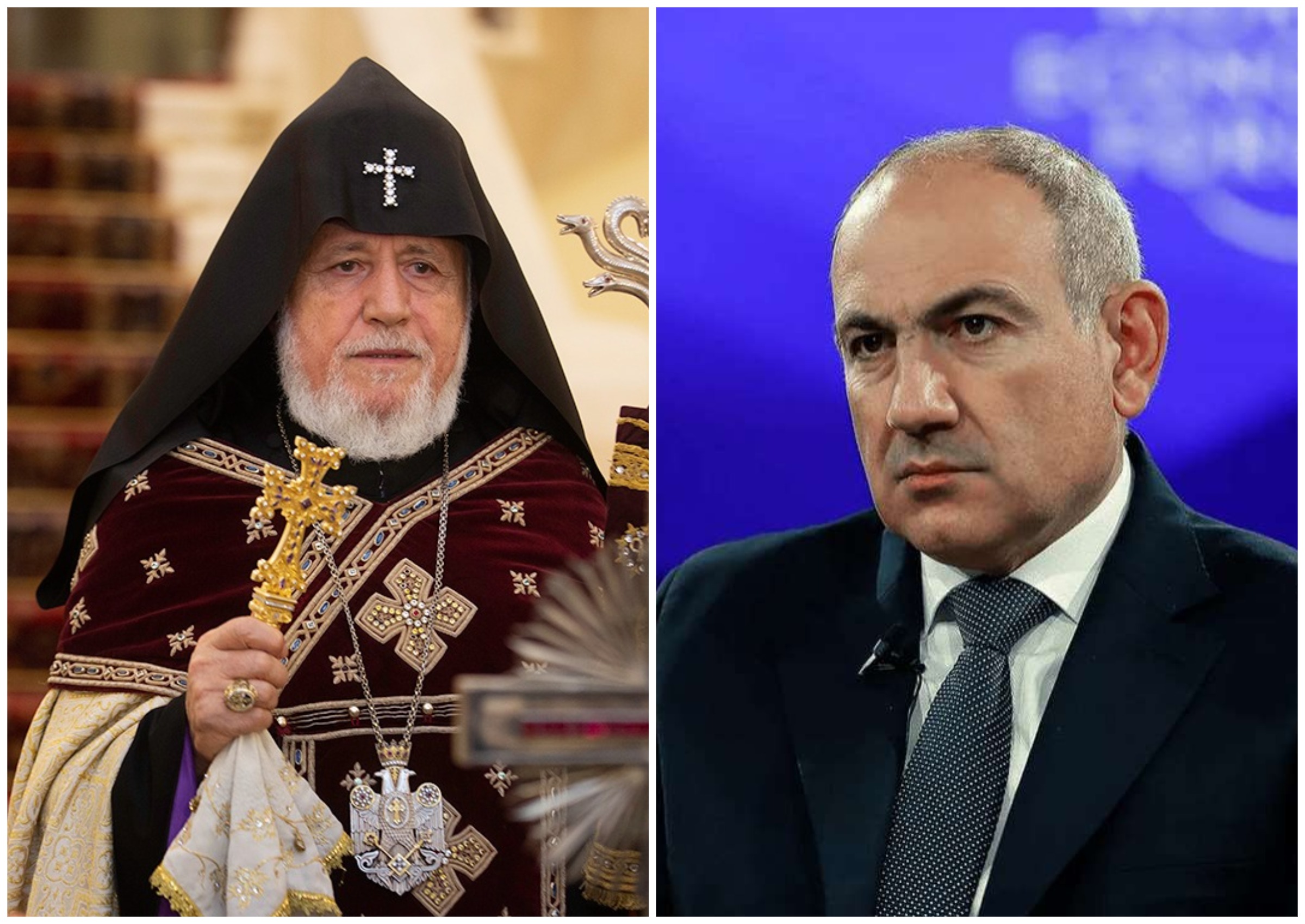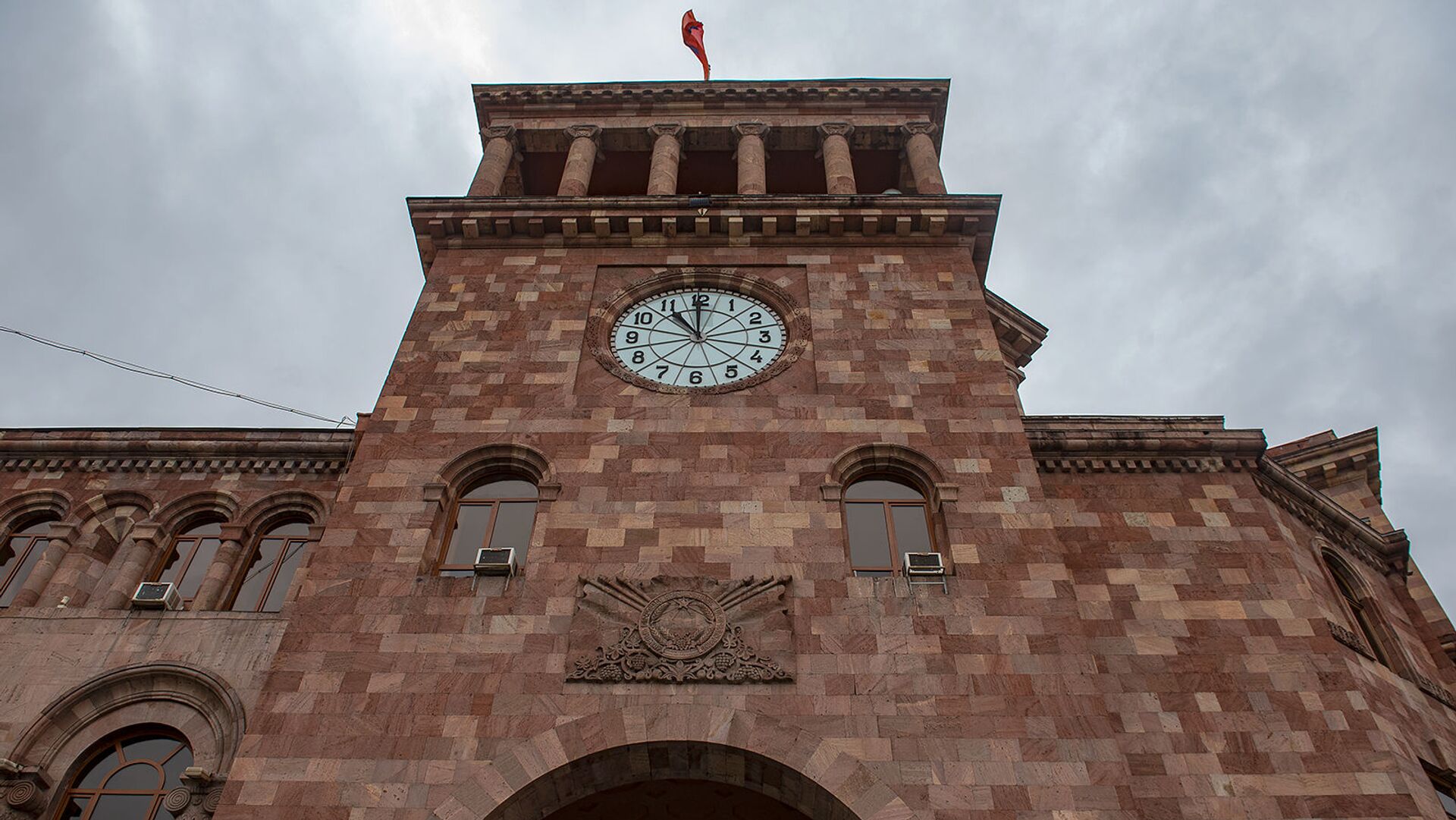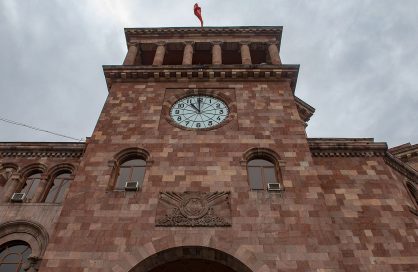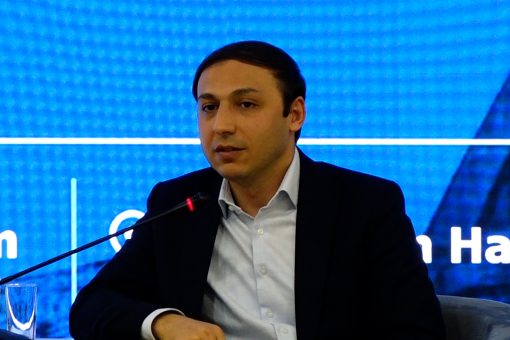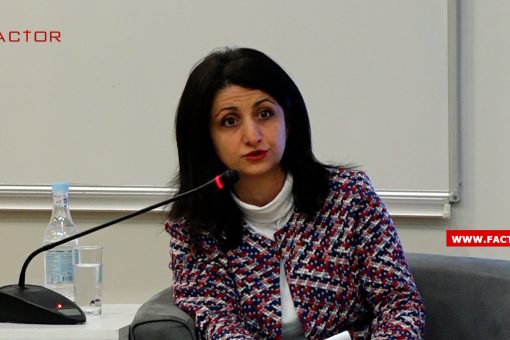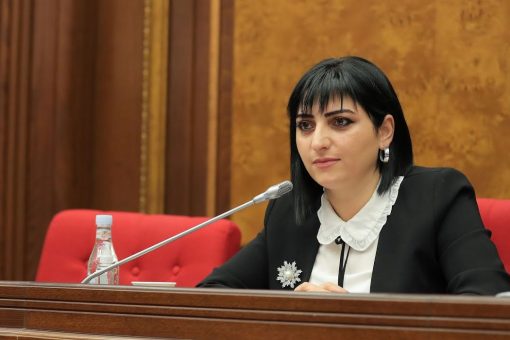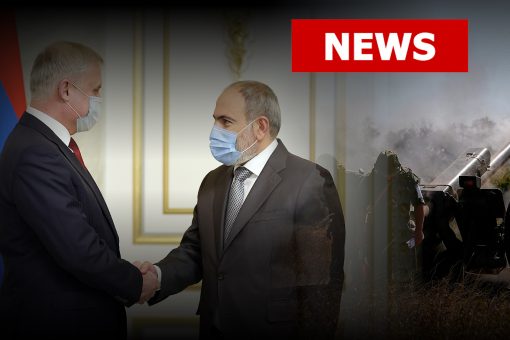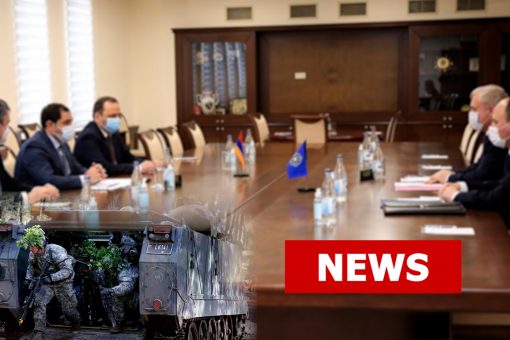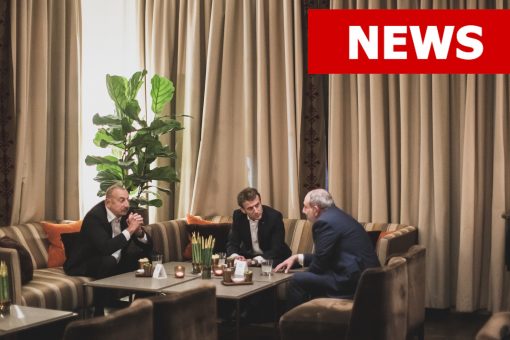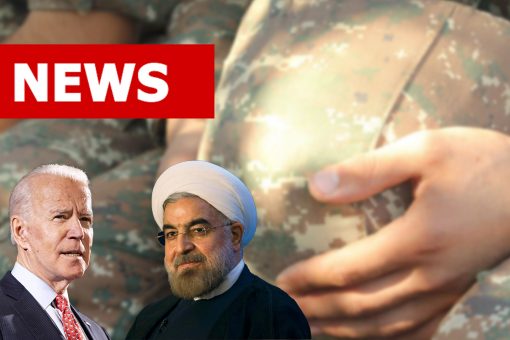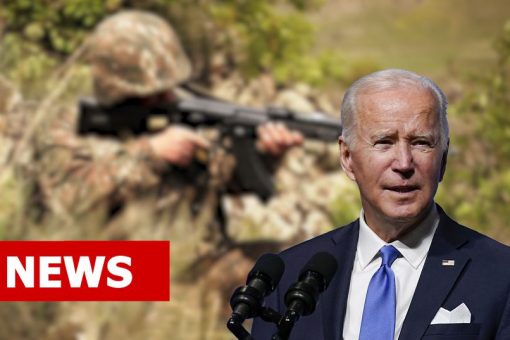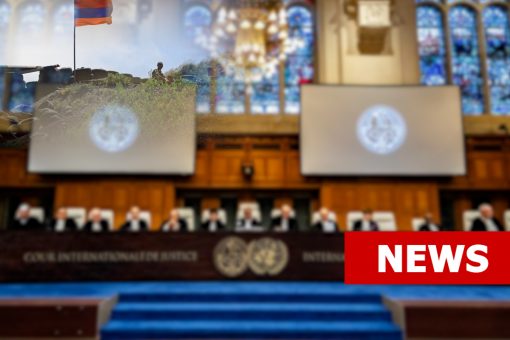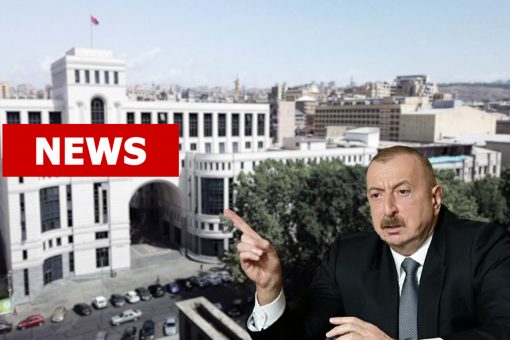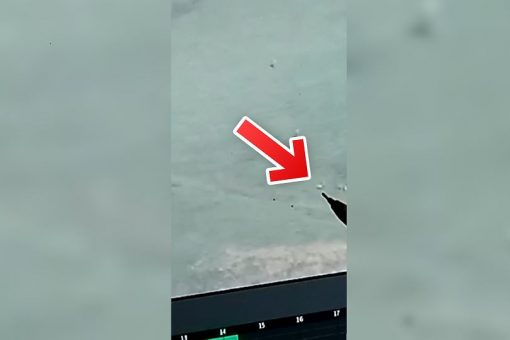National Interest: Is Azerbaijan’s Ilham Aliyev the new Saddam Hussein?
POLITICS
17.04.2021 | 10:55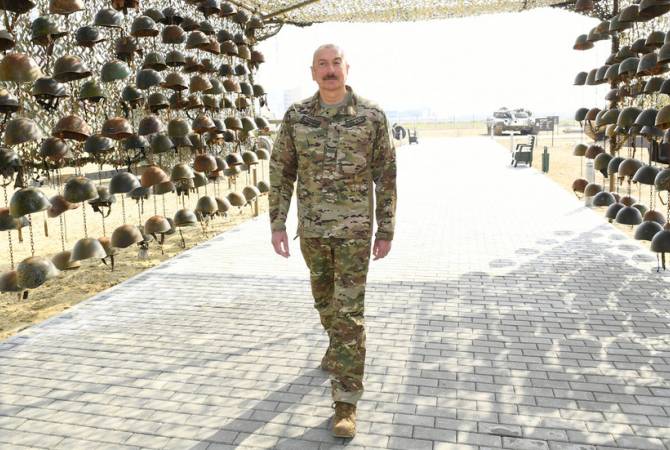
The National Interest magazine has published an article about Azerbaijani President Ilham Aliyev and the ”park-museum” opened in Baku at his initiative.
“Azerbaijani Ilham Aliyev is proud. On April 12, 2021, Azerbaijani public television station ITV broadcast an hour-long program inaugurating a new museum in Baku to celebrate Azerbaijan’s victory in the forty-four-day Nagorno-Karabakh War. Aliyev, who never served in the military even as his peers fought in the first Nagorno-Karabakh War, strolls around in military fatigues showing off captured Armenian equipment and wax models of Armenian soldiers before addressing assembled troops. The centerpiece of the “Park of Trophies” is an arch made from the helmets of killed and captured Armenian soldiers. That Azerbaijan continues to hold illegally 260 prisoners of war (POWs) and kidnapped civilians, some of whom it might have killed in captivity, underscores the tastelessness of the display.
Aliyev is not the first to construct such a display. In his 1991 work The Monument, a study of the public art of a totalitarian society, Kanan Makiya, the son of a famous architect and a prominent Iraqi intellectual, profiled the “Victory Arch,” known to locals as the Swords of Qadisiyah. Commissioned in 1985 and opened four years later, the monument, which stands taller than the Arc de Triomphe in Paris, consisted of forearms molded from Saddam Hussein’s own and fists holding crossed swords made from steel derived from the melted weaponry of fallen Iraqi soldiers. Five thousand Iranian helmets taken off the battlefield completed the monument. Hussein’s speech initiating its construction was little different from Aliyev’s: “Brave Iraqis have recorded the most legendary exploits in defense of their land and holy beliefs,” Hussein declared on April 22, 1985. “We have chosen that Iraqis will pass under their fluttering flag protected by their swords which have cut through the necks of the aggressors.” Aliyev, for his part, declared at the park’s inauguration on Monday, “Everyone who visits the park of military trophies will see the strength of our army, will see our willpower, and how hard it was to achieve victory.” As for POWs, I was the Pentagon Iraq desk officer on duty when the mass graves of Kuwaiti prisoners whom Hussein had seized were found.
The similarities between Hussein and Aliyev are increasingly hard to dismiss. Years before he became an avowed enemy, Hussein intrigued the State Department who saw him as a pragmatic moderate. In an April 1975 meeting, for example, Assistant Secretary of State Alfred Atherton for Near Eastern Affairs told Secretary of State Henry Kissinger, “Hussein is a rather remarkable person . . . he’s a very ruthless and—very recently, obviously—pragmatic, intelligent power.” The United States holds much the same assessment toward Aliyev.
In 1983, President Ronald Reagan dispatched Donald Rumsfeld, at the time a former secretary of defense, to meet with Hussein. Rumsfeld was impressed. “I began to think that through increased contacts we might be able to persuade the Iraqis to lean toward the United States and eventually modify their behavior,” he recalled. Undersecretary of State Lawrence Eagleburger told Hussein’s envoy not to take seriously American condemnation of chemical weapons. The recent history of the Minsk Group shows U.S. officials likewise seemingly downplaying concerns about Azeri violations of its international agreements.
In both cases, the State Department was willing to ignore the treatment of minorities. When reports surfaced regarding Hussein’s use of chemical weapons against Iraq’s Kurdish population, one American diplomat explained, “The approach we want to take is that, ‘We want to have a good relationship with you, but that this sort of thing makes it very difficult.’” Meanwhile, the State Department remains silent as Aliyev calls the Armenian genocide false.
There has also been a similar sense of dictator chic surrounding Hussein’s Iraq and Aliyev’s Azerbaijan. In December 1985, the Washington Post Magazine gave a swooning account of a dinner party hosted by Iraqi ambassador Nizar Hamdoon whose outreach was targeting influential Jewish American and pro-Israeli figures. Today, the Azerbaijani embassy in Washington regularly targets the same audience. Journalists and diplomats both recognize Aliyev’s “caviar diplomacy.”
Both Hussein and Aliyev also sought glory through territorial conquest while blaming their victims. When Hussein bragged about decapitating Iranian aggressors, he omitted that Iraq started the war with a surprise attack. Likewise, Aliyev suggests that Armenians were the aggressors when it was Azeri forces, in conjunction with Turkish support, who launched a multipronged, surprise attack on Nagorno-Karabakh on the centennial anniversary of the Ottoman invasion of Armenia. Both Hussein and Aliyev were also irredentists. American diplomats dismissed Hussein’s repeated statements that Kuwait was a wayward Iraqi province as rhetoric excess right up to Iraq’s surprise invasion of Kuwait; today, the State Department ignores Aliyev’s statements laying claim to the entirety of Armenia.
The parallels go further. While diplomats considered both Hussein and Aliyev secular moderates, both sought to channel Islamist extremism to their benefit. Years before the Islamic State beheaded women deemed un-Islamic, the Fedayeen Hussein would decapitate women, many professionals, whom the Baathist regime deemed “prostitutes” for refusing to veil. During the most recent conflict, Aliyev imported and dispatched Al Qaeda-linked mercenaries from Syria.
Enumerating the similarities between Hussein and Aliyev is not just an intellectual exercise, but rather a warning. While the State Department debates its strategies toward other countries, seldom does it recognize that dictators have their own strategies to distract and deceive the United States with charm, charisma, caviar, and cocktails. They believe Americans naïve for allowing themselves to be distracted by a paper-thin patina while they pursue other agendas. Should American officials continue to calibrate policy to the style of Azeri officials rather than the reality of their policies, however, the world will likely see another war of aggression by Azerbaijan, just as Hussein launched his own against Kuwait more than three decades ago”.








